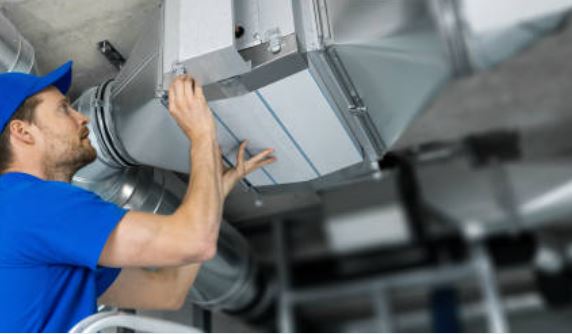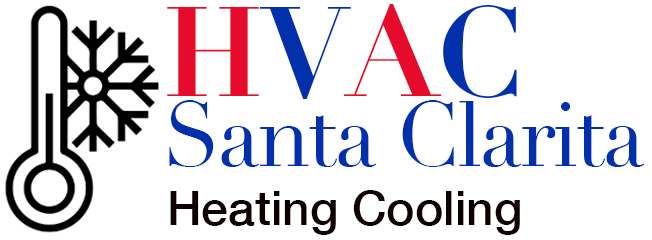Evaporative cooler vs air conditioner: which is the best cooling technology for you?
Many people believe cooling technology is cooling technology as long as the result is a cooler surrounding.

call 661-888-0248
Contact us 24/7 for HVAC services!
However, this article will highlight the essential factors of an evaporative air cooler vs air conditioner. And, you will discover what the best option for you is. You will tackle the summer heat and humidity even much better with this knowledge.
Shall we dive right into the details?
Evaporative Cooler vs Air Conditioner: What are They, and How Do They work?
Home owners in drier and moderate climates can choose between an air conditioner or an evaporative cooler (1).
As much as they all cool the indoor air, there are significant critical differences you should consider. To start, we look at what they are and how they work.
How Does an Air Conditioner Work?

An air conditioner transfers hot air from indoors to the outdoors. The result is a cooler, less humid indoor environment. The principle is the same whether you have a central air conditioning unit or a window unit.
However, an air conditioner stands out because it uses a chemical refrigerant or freon. This chemical absorbs heat from the living space and transfer it outside. The refrigerant keeps flowing through a series of coils and tubes connecting the indoor and outdoor units.
What is An Evaporative Cooler and How Does it Work?

Evaporative coolers are also called swamp coolers.
Evaporative coolers are much like air conditioners because they can also cool a house.
However, what stands out is that it uses no chemical refrigerant. It uses only water and a fan to get the cooling job done.
Swamp coolers perform by passing air over a wet pad. The moisture in the pad then evaporates into the air, consequently cooling it and adding some moisture.
You are probably wondering where this water comes from. You can connect the swamp cooler to a water source for many advanced models directly. However, for more casual models, you need to add in some water physically. Therefore, you can add some ice cold water if you need a more substantial cooling effect.
The water needs to be controlled to ensure that the swamp cooler works effectively.
The Differences: Evaporative Cooler vs Air Conditioner

We do an air conditioner vs evaporative cooler head on below. We look at different factors that matter in selecting an excellent cooling system.
This comparison will help you know the best option for you.
Upfront Costs of Evaporative Cooler vs Air Conditioner
Swamp coolers are much cheaper than traditional air conditioners.
It may cost you up to $500 to buy a swamp cooler. However, on the other hand, you will part with a couple of thousands for air conditioning installation.
You will spend even more to install a ductless AC if you don’t have ductwork already. Therefore, if you have a lower upfront budget, evaporative coolers would be an attractive option for you.
Indoor Air Quality
It is no lie that air conditioners offer better air quality than evaporative coolers. Therefore, if you have people with allergies in the house, you may want to highly consider an AC unit over a swamp cooler.
The filters of an AC system suck in air through a filter. This ensures no or minimal pollen, dust, pollutants, and dirt particles find their way to your indoor air. The result is, therefore, fresh and cold air.
We highly recommend an AC for people who live in a dusty area.
Indoor Humidity
Evaporative cooling and a traditional air conditioner work differently when managing humidity.
AC units help remove humidity in the air. However, this function will significantly depend on the climate on the evaporative cooling hand. This is because they add humidity to the air to keep you cool.
If you are home or in a dry area, you may benefit big time from this feature.
If you live in a humid area, a dehumidifier can help you keep humidity levels in your house. Check out our dehumidifier vs air conditioner head on to help you decide.
System Maintenance
AC units will need some keen attention when it comes to maintenance frequency. And even more notable, you may need to cater for AC servicing once in a while.
You will need to change and clean your air filters at least once every 30-90 days.
On the other hand, you need to invest more attention and time in maintaining your swamp cooler. It would be ideal if you changed the absorbent pad more frequently. It would be best to clean it frequently to prevent mold build up.
We advise that you invest at least an hour or two cleaning your evaporative cooler every weekend. If you have no time for this, it will not work well for your house.
However, the constant for these two cooling gadgets is you will need AC repair. The gadgets can develop issues any time. Be sure to have 24-hour AC repair to help you in case of emergencies.
Environmental Impact
The thing about cooling technology is it does more than giving us cold air when we need it. When getting these devices, ask yourself how much it impacts the environment.
You have to know that refrigerants are not as safe. It is good that modern-day refrigerants are safer than past versions. This, however, does not make it 100% safe. If it leaks out of your system, it can potentially be harmful to you and your home.
They often leak out of stress fractures of aging air conditioners. Be sure to have constant maintenance to ensure there are no leakages.
On the other side, the environmental impact of an evaporative cooler is way smaller than that of traditional AC units. They only use electricity and water to cool your home. They also emit less CO2 and noise.
Simply put, evaporative cooling is more gentle and friendly to the environment.
Which is the best option for you?: Evaporative Cooler vs Air Conditioner

When we think of air conditioning units and evaporative coolers, the common denominator is they give us cool air.
When summer’s warm air hits, this is basically what everyone cares about. However, beyond the cool and fresh air from these cooling gadgets, distinct differences make each good in its way.
Simply put, what works for your neighbor may as well not work for you. The common factor to look at in this situation is your area’s climate. But, we encourage you to go beyond that.
Here are some major takeaways from the two cooling gadgets.
Key Takeaways on Evaporative Cooling
Evaporative coolers work exceptionally well in dry and hot climates and weather. They are also suitable for cooling smaller spaces.
Here are some takeaways to keep in mind if you are considering getting one:
- They are suitable for energy efficiency as they are economical to use and operate,
- Effective cooling option for dry and hot climates;
- Environmental friendly as they use water and emit minimal CO2,
- Make minimal noise while running,
- Inexpensive to install,
- Involves no chemicals in their operation,
- They add excellent moisture to the air, making it more suitable for desert environments.
The Downsides of an Evaporative Cooler
- Not suitable if you already live in a humid environment as they tend to add humid to the air,
- They require weekly maintenance.
Key Takeaways on Traditional Air Conditioners
Whether it’s portable air conditioners, window air conditioners, or central air conditioners, the technicalities and performance will remain the same.
Here are some vital takeaways to keep in mind if you shop for air conditioning units.
- Air conditioners are effective in all climates, whether dry, humid or moderate,
- Require regular AC maintenance and cleaning, but not as much as when you have a swamp cooler,
- They eliminate moisture from the air, making it suitable for humid climates,
- Super-effective in larger and enclosed spaces such as homes, offices,
Downsides of Air Conditioners
- They have high operating costs that evaporative coolers and other cooling
- Use more energy than evaporative coolers
- Higher upfront costs
- Higher CO2 emissions,
- Noisier than swamp coolers.
Evaporative Cooler vs Air Conditioner Frequently Asked Questions

We answer some FAQs on the swamp coolers and air conditioners head-on. We hope these questions help you make a better choice.
What is the difference between evaporative coolers and air conditioners?
The main difference is an evaporative cooler uses water to absorb heat from the air while air conditioners use refrigerants to absorb heat from the air.
For evaporative coolers, air passes over water-saturated pads. The moisture then evaporates into the air and reduces to the heat.
What is a better evaporative cooler or air conditioner?
It would not be very easy for us to pinpoint what is the best option because this largely depends on your climate. According to the US Department of energy, swamp coolers can lower heat by 5-15 degrees. And they are perfect for dry and low humidity regions as they add humidity to the air.
On the other hand, air conditioners will work well in all climatic conditions. They are, however, costly to install, maintain and operate.
Do evaporative coolers cool a room?

Yes, they do lower house temperatures, sometimes up to an incredible 15 degrees. That is an excellent cooling capacity for hot sunny days.
However, you need to know how humidity levels affect the cooling capacity of your evaporative coolers. The higher the humidity, the less the cooling efficiency. For instance, if your air is 10% humid, a swamp cooler down by up to an impressive 20 to 30 degrees. However, if the humidity is at 50%, swamp coolers can only lower the temperatures by up to 10 degrees.
What are the drawbacks of evaporative cooling?
One of the significant drawbacks of evaporative coolers is that they work well in less humid and dry climates. If you are in a humid region, a swamp cooler can make you even more humid, sticky and less comfortable. They steadily add amounts of humidity to the air.
Do you need to have a window open with evaporative cooling?
We recommend that you leave your windows partially open. This will boost the functioning of your swamp cooler. Leaving a window open allows warm air to escape and be replaced by cool air.
This way, your house will be filled with cleaner and fresher air.
Do evaporative coolers work in high humidity?

Yes, they do. We recommend that you leave your windows partially open to boost the functioning of your swamp cooler. Leaving a window open allows warm air to escape and be replaced by cool air.
This way, your house will be filled with cleaner and fresher air. It will be untrue to say they do not work in high humidity. However, you need to know that their performance is significantly reduced.
At what Humidity do Evaporative Coolers Stop being Ineffective?
Humidity above 60% gradually starts being too much for an evaporative cooler. Above this, evaporative coolers will still blow warm air out of the room, but not as effectively as how air conditioners work.
Final Thoughts on Evaporative Cooler vs Air Conditioner

It’s time to call it a wrap for us on the evaporative cooler vs air conditioner head-on. At this juncture, we are convinced that you know for sure what is the right cooling technology for you. No? If you are unsure yet, this summary will do it for you.
If you are on a tight budget, go for an evaporative cooler. You will appreciate an evaporative cooler’s performance if you live in a dry climate. Also, if you are keen on loving the planet, get a swamp cooler. You want to avoid a swamp cooler if you experience water shortages. However, if you would love something more stable that is all-around, go for an air conditioner.

call 661-888-0248
